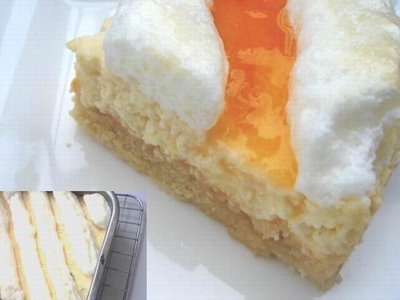 Magyarul hamarosan
Magyarul hamarosanWhen I saw the announcement for this months Sugar High Friday, this time organized by Andrew at Spittoonextra, I was so sure, I want to participate.Why? Because the theme this months is dairy products. I always try to whip up some typical Hungarian dish whenever I blog in English, and that’s so very easy this time. A lot of our typical sweets and pastries are being prepared with tons of dairy products, more specifically our curd cheese: túró. Then I also enjoyed that great post of Angelika about those wonderful looking Austrian Topfenpalatschinken (which I by the way of course consider as Hungarian:)) and Pille’s Estonian curd dessert. Ever since I have had some bad cravings for that real curd cheese. Not ricotta not cottage cheese, not quark, but túró. The real Hungarian thing is not available here in Belgium, neither is it in other neighbouring countries as far as I know. There are some similar products everywhere but none of them comes close and has the same texture and taste like our TÚRÓ. It’s crumbly, slightly dry but creamy, a little sour, a little bitter and fantastic. I found a funny post about its terminology at this site written for the expat community in Budapest. Anyway, I smuggled some of the stuff in my handbaggage to Brussels and just had to decide what to make with it (I love to eat it plain just as it is, maybe mixed with a good sour cream and a dollop of homemade jam but that wouldn’t qualify for SHF I’m afraid,). This time I had a wide choice since there is a number of wonderful Hungarian sweets containing curd cheese –I could make some curd cheese dumplings, or maybe some curd cheese pie or a Vargabéles – a popular strudel cake consistig of a mixture of curd cheese, eggs and cooked vermicelli noodles between two layers of crispy filo pastry.
Finally I decided for this sophisticated cake: „Curd cheese square Rákóczi style”, because 1. I’ve never prepared it from scratch, 2. it has even something to do with Belgium where I live right now.
The cake was namely named after János Rákóczi, a Hungarian chef (1897-1966) According to some sources the cake was popular in the thirties and the recipe was first published in 1937 for a food magazine „Magyar Szakács” (The Hungarian Cook). However, it aquired some international attention at the EXPO 58 – the Universal Exibition in Brussels in 1958 where it was served at the Hungarian restaurant. (According to other sources, the cake itself was in fact invented for the menu of the restaurant).
You can get this cake at every pastry shop in Hungary, there might be slight differences in the look – the original version has some meringue grids on its top, filled in between with apricot jam, other versions have a very thick layer of meringue. The base is a thin paté sucré crust, followed by a layer of sweet curd cheese filling and finally that meringue. As for that curd cheese you might try to drain ricotta or fine curd cottage cheese overnight through a paper-towel lined sieve set over a bowl, I think that would probably give you a good substitute. Dry curd cheese is preferred for the filling because a wet, creamy one would melt, giving a soft, runny texture.
Ingredients (for 12 pcs)
Dough:
150g flour
75g cold butter
40g icing sugar
1 tbsp sour cream
pinch of salt
Filling:
500g curd cheese
100g sugar
3 egg yolks
grated zest of 1 lemon
100ml sour cream
big handful of raisins
For the meringue:
3 egg whites
50g icing sugar
optional: apricot jam
Preheat oven to 200C. Mix flour, butter, sugar, salt and sour cream. Let the dough rest for 15 minutes in the fridge. In the meantime prepare the filling: mix the curd cheese, sugar, yolks, lemon zest, sour cream and raisins. (Some recipes advise to put the curd cheese through a sieve, I didn”t because I prefer the more crumbly texture). Roll the dough to the size of a baking pan (18x25cm) and bake it for about 15 minutes or until lightly golden. Reduce the oven temperature to 180C. Spread the cheese mixture over the base and bake until set (about 20 minutes). Reduce the oven again to 160C. Whisk the eggwhites untill stiff (add sugar at the end). Now you have two options: either you simply spread all the meringue on the top of the filling, or (like I did) you pipe some strips (or grids) of it on the top. Bake for 5-10 minutes until just lightly dried. Let completely cool and cut into squares. If you made the srips or grids, fill in between with apricot jam.
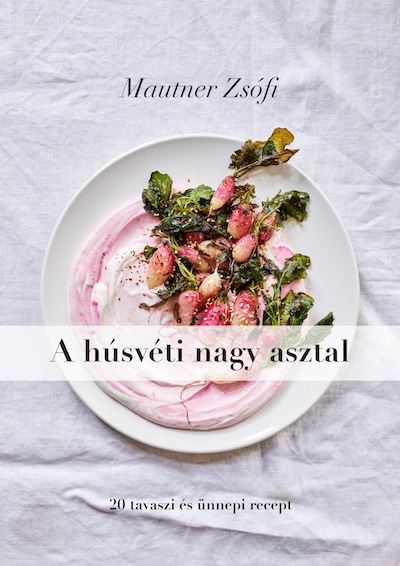
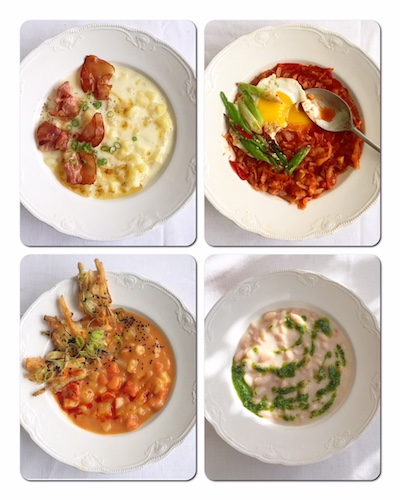
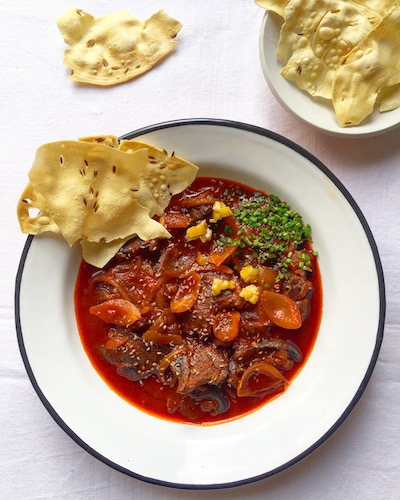
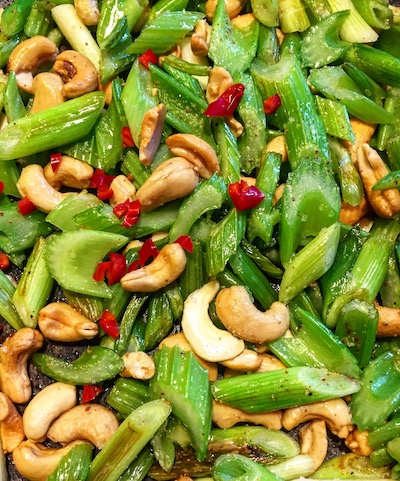

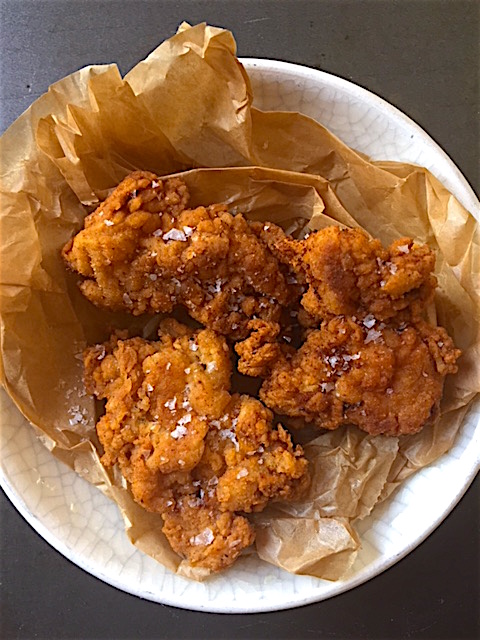
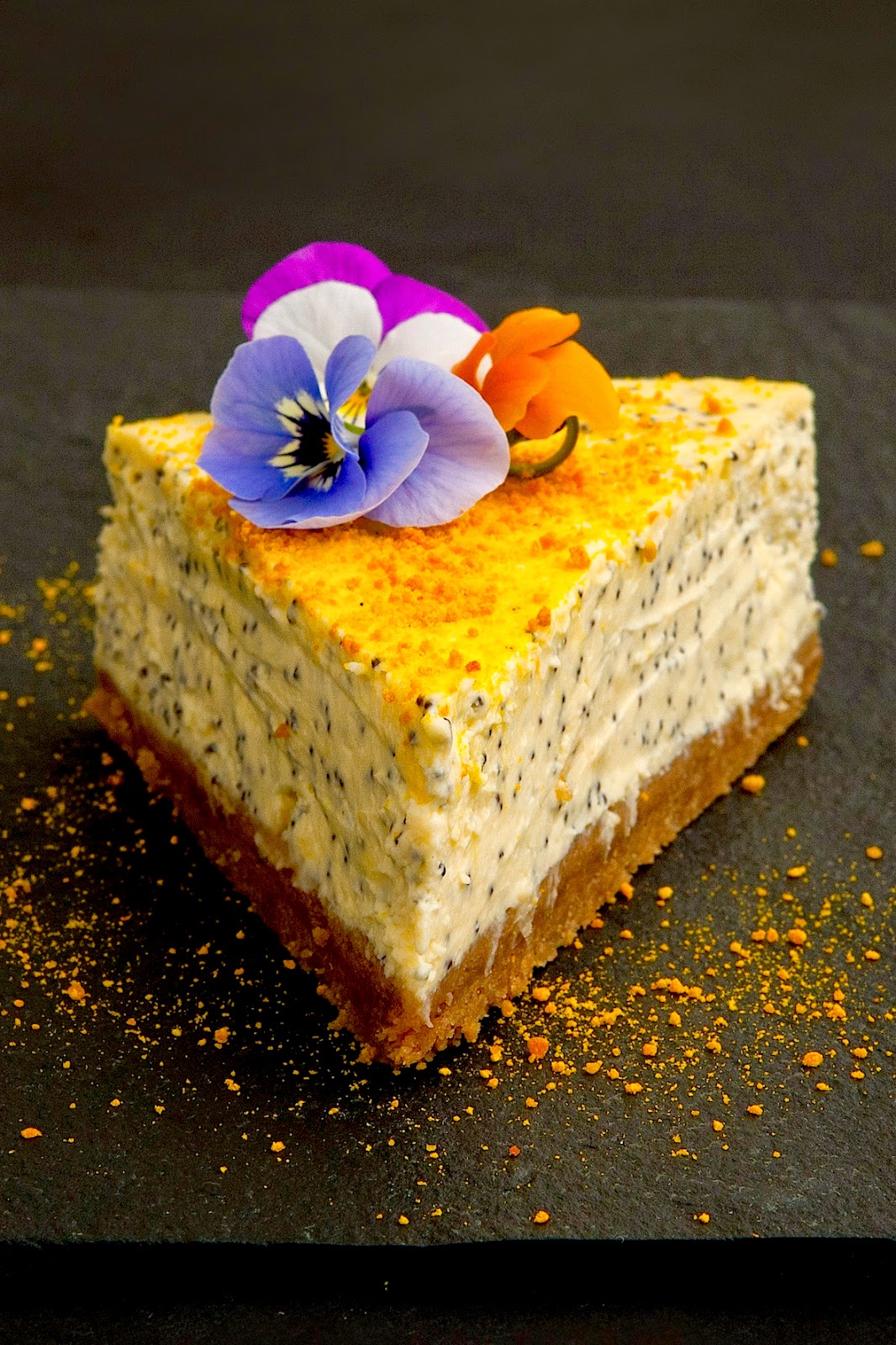
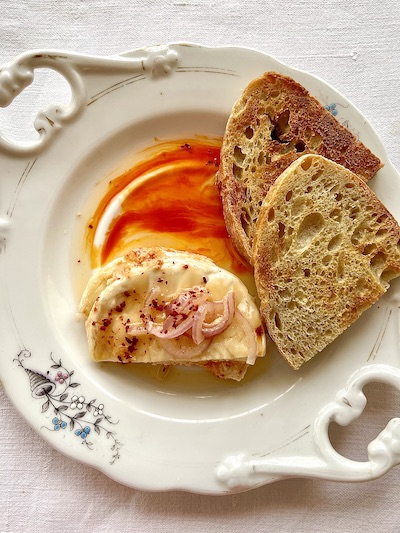

Thank you for mentioning my humble curd cheese cream:) Curd cheese square cakes are very very popular back home, but without fancy marengue toppings. I think I better make one soon now – your picture looks very tempting!
They sound really stunning – just abit to complicated for me to replicate I think! Thanks for taking part in SHF. I dont have the list in front of me and dont recall if I have asked if you would like to join in with EBBP4 – details on spittoonextra.
My dear „Closest Neighbour” Zsofi, first of all thank you for mentioning my Topfenpalatschinken. Of course your are right to consider them real Hungarian, no doubt 😉 Whenever I say „we” I mean Hungarian-Bohemian-Austrian. It’s funny that blogging has also brought along a new consideration about my/our culinary roots. What you describe as „Hungarian curd” sounds like our „Bauerntopfen”. By the way, I will be back on blogging tomorrow (I intended to blog today, but I have just had such a lovely evening with my sweetheart so I fell a little bit too tipsy to blog…:-) with another curd recipe – since curd seems to be quite „en vogue” for the time being. And of course I will try your recipe sooner or later, thank you for focusing on our mutual culinary roots 🙂 And not to forget I will write about my courses soon – stay tuned ! Many hugs and much love from the flying apples
This is maybe my 2nd favourite curd cheese dish. But, my favourite is the real rustic curd cheese raised cake with dill 😀 sounds tough? (=kapros túróslepény, in Hungarian)3rd is túró rudi 🙂
Thank you so much! I have been looking for this. My nagymama raised me and use to make this.
thanks for sharing.
The Polish curd cheese is exactly the same as ours. 🙂 They call it twarog by the way:) I used it in numerous Hungarian puddings like the Rakoczi style square or the curd cheese strudel. Let alone, because its cheaper in England where i live than the Hungarian one, I opt for the Polish one even if the shops are right next to each other 😀